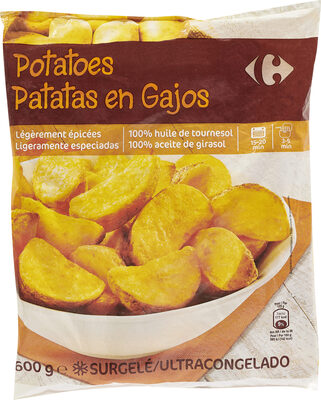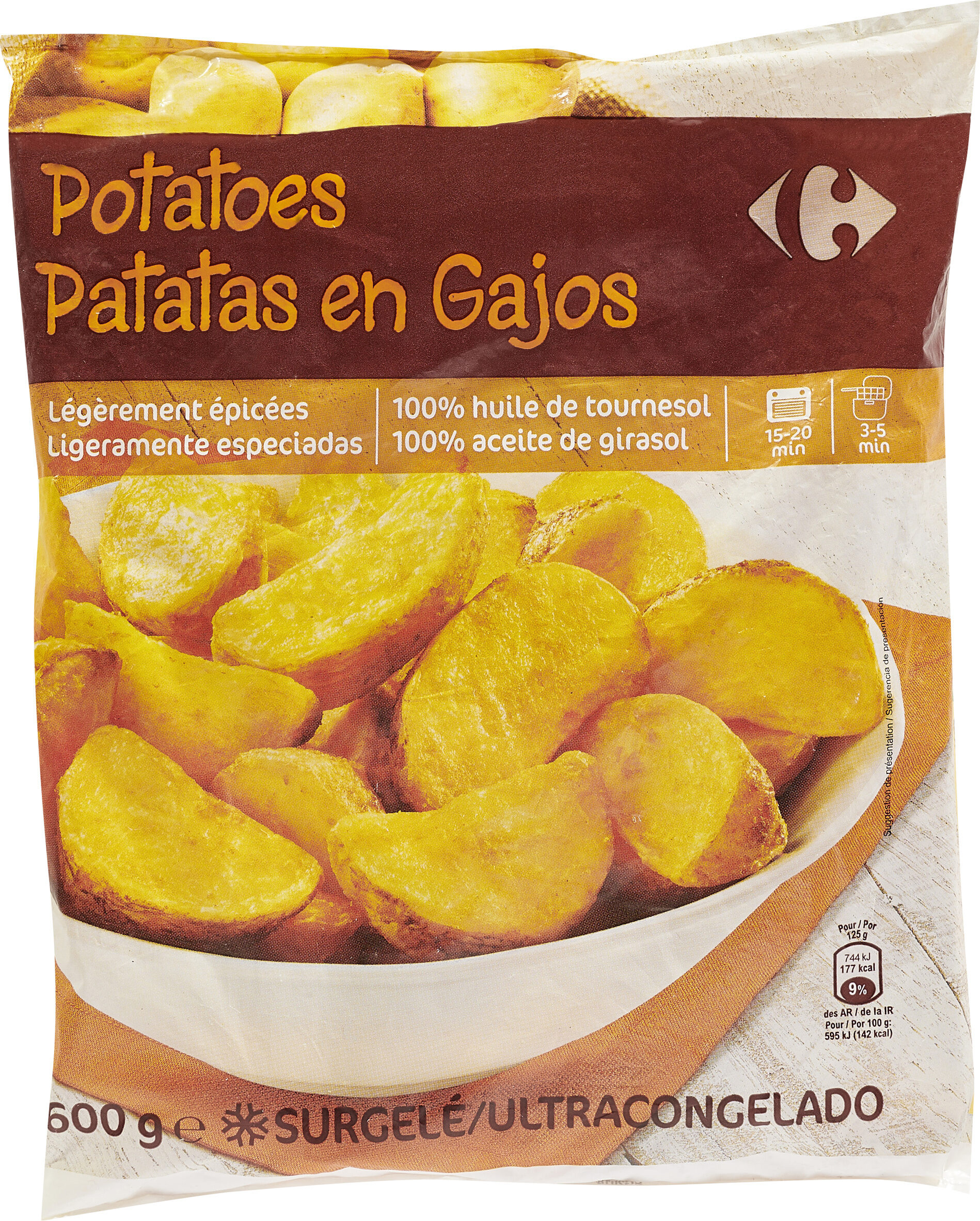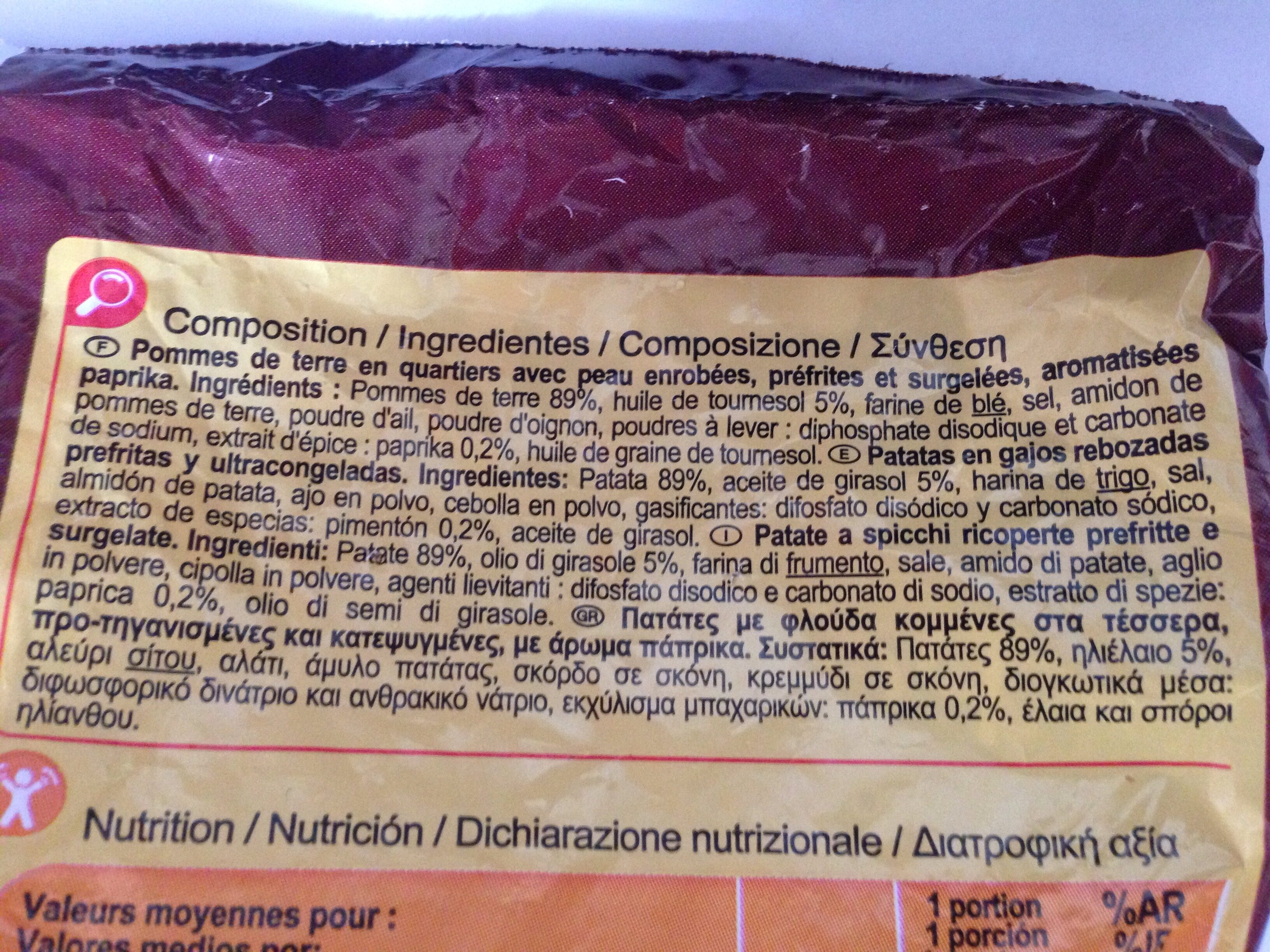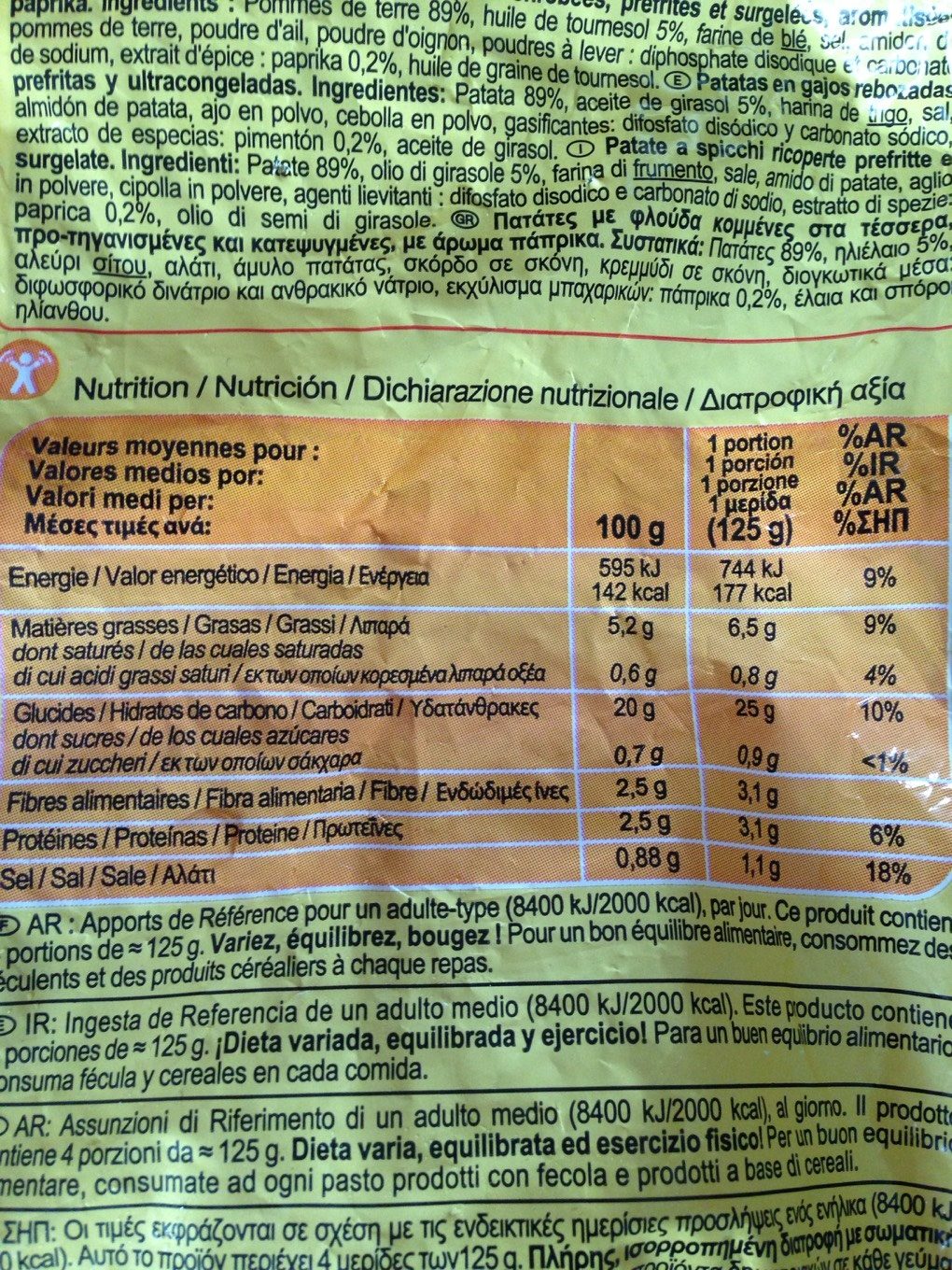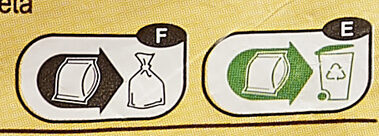Potatoes - Carrefour - 600 g
This product page is not complete. You can help to complete it by editing it and adding more data from the photos we have, or by taking more photos using the app for Android or iPhone/iPad. Thank you!
×
Some of the data for this product has been provided directly by the manufacturer Carrefour.
Barcode: 3560070699377 (EAN / EAN-13)
Common name: Pommes de terre en quartiers avec peau enrobées, préfrites, aromatisées paprika - Surgelé.
Quantity: 600 g
Brands: Carrefour
Categories: Plant-based foods and beverages, Plant-based foods, Cereals and potatoes, Chips and fries, Frozen foods, Frozen plant-based foods, Frozen fried potatoes, Frozen potatoes, Fries, Frozen cooked spiced potato chips, Frozen fries, fr:Alimentos de origen vegetal, fr:Alimentos de origen vegetal congelados, fr:Alimentos y bebidas de origen vegetal, fr:Aperitivos, fr:Botanas, fr:Cereales y patatas, fr:Chips fritos, fr:Congelados, fr:Patatas, fr:Patatas congeladas, fr:Patatas fritas, fr:Patatas fritas congeladas, fr:Snacks salados
Labels, certifications, awards:
Green Dot, Made in Belgium, With Sunflower oil
Origin of the product and/or its ingredients: Ces Potatoes sont fabriquées en Belgique à partir de pommes de terre cultivées en Union Européenne et d'huile de tournesol issue de diverses origines.
Producer: Fabriqué en Belgique par VVP-EMB : B-02613 pour Interdis.
Manufacturing or processing places: Belgique
Traceability code: EMB B-02613
Stores: Carrefour, carrefour.fr
Countries where sold: Spain
Matching with your preferences
Other information
Other information: 600g e / Etoile surgelé + Surgelé en toutes lettres / GDA énergie Nos pommes de terre sont issues des meilleures variétés, notamment la Bintje. Elles sont soigneusement sélectionnées pour la fabrication de nos Potatoes. Nos pommes de terre sont coupées, enrobées et préfrites dans l'huile de tournesol. Pour de fondants et croustillants quartiers de pommes de terre, enrobés d'une préparation légèrement épicée. Carrefour élabore ses Potatoes avec 100% d'huile de tournesol. En garantissant un faible taux d'acides gras saturés, l'huile de tournesol améliore la qualité nutritionnelle des produits. Légèrement épicées / 100% huile de tournesol / Picto Four (15 - 20 min) / Picto Friteuse (3 - 5 min)
Preparation: Au four : Préchauffez le four à 220°C (th.7). Étalez les potatoes encore surgelées en une seule couche sur la plaque du four. Glissez la plaque à mi-hauteur du four et laissez cuire 15 à 20 minutes environ. Retournez les potatoes à mi-cuisson. Servez bien chaud. Il est inutile de les resaler. À la friteuse : Plongez les potatoes encore surgelées par petites quantités dans de l'huile chauffée à 175°C et laissez dorer pendant 3 à 5 minutes. Pour limiter le surplus de matière grasse, laissez reposer les potatoes sur du papier absorbant. Pensez à renouveler le bain d'huile après 10 à 12 fritures.
Warning: ATTENTION, NE PAS RECONGELER APRÈS DÉCONGÉLATION.
Conservation conditions: À consommer de préférence avant le : voir au dos du sachet. À conserver 24 heures au réfrigérateur, 3 jours dans le compartiment à glace du réfrigérateur, plusieurs mois dans un congélateur*** à -18°C.
Customer service: Interdis - TSA 91431 - 91343 MASSY Cedex - France
Report a problem
Data sources
Product added on by kiliweb
Last edit of product page on by roboto-app.
Product page also edited by autorotate-bot, benelyas, carrefour, driveoff, ecoscore-impact-estimator, jeremy64, naruyoko, openfoodfacts-contributors, org-carrefour, quechoisir, quentinbrd, thaialagata.
